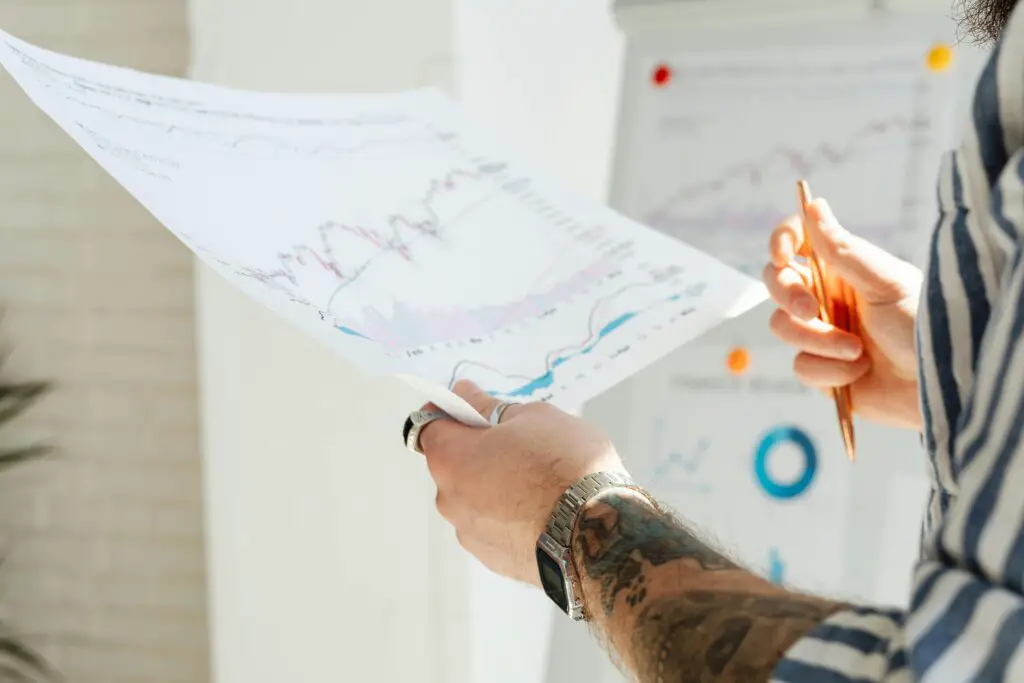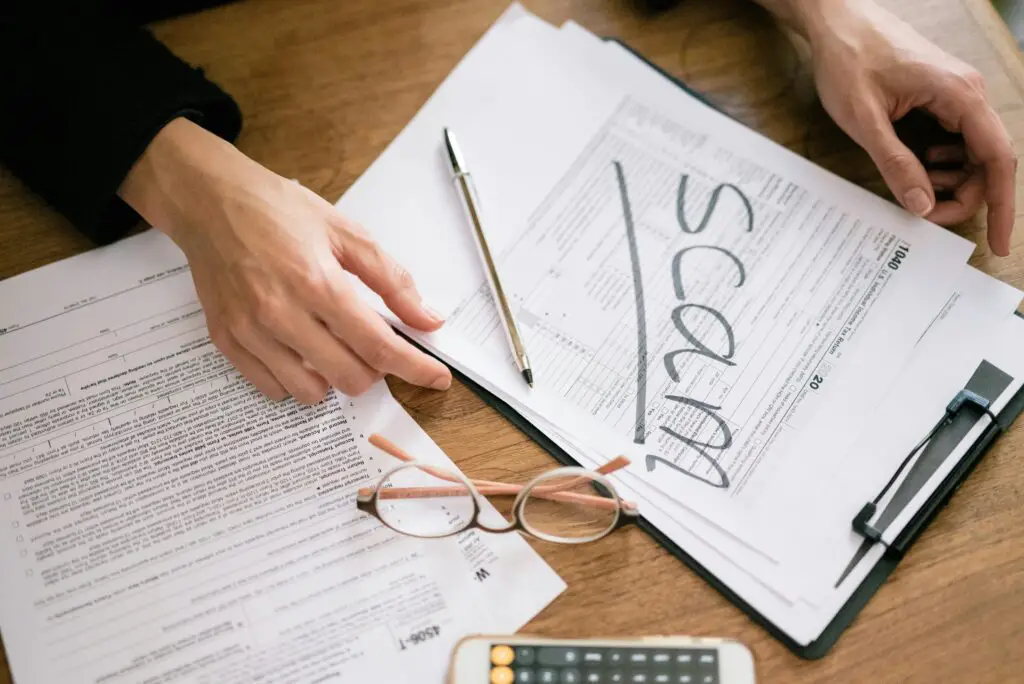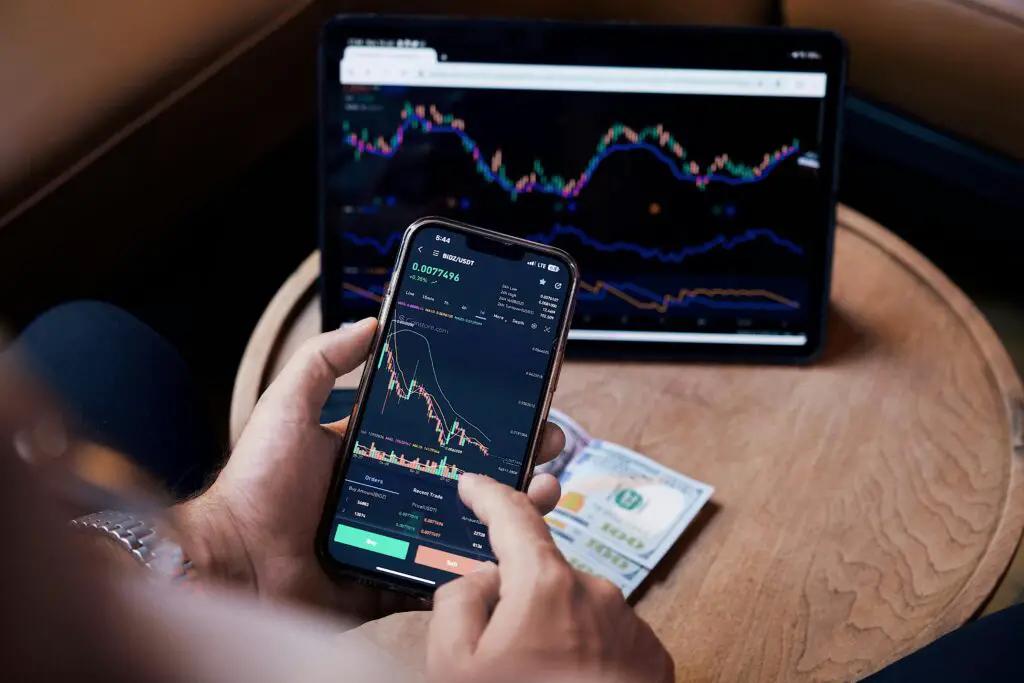Over time, forex trading, also known as foreign currency trading, has grown in popularity. This financial sector attracts many people as it offers the possibility of large rewards. However, as popularity has increased, so have Forex trading scams, leaving many investors open to deception. Read this:
What is trading Forex?
The Fundamentals of Trading Forex
Trading in and out of currencies on the foreign exchange market with the goal of turning a profit is known as currency trading. With more than $6 trillion worth of trading activity every day, it is the biggest financial market worldwide. Traders use various methods and instruments to make predictions on changes in currency prices.

Comparing Real Forex Trading with Scams
Legal currency trading can succeed but also requires skill, strategy, and expertise. Conversely, scams target the unsophisticated by offering quick, simple gains devoid of danger.
Typical Forex Trading Frauds
Ponzi schemes
Ponzi schemes create the appearance of a successful company by diverting money from new investors to pay returns to previous investors. These programs eventually end when the operator is unable to find new investors.
Scams Using Signal Sellers
Sellers of signal services claim to be able to tell customers when to buy and sell currencies to profit. However, many of these sellers give out incorrect or outdated signals, which causes traders to lose money.
Robotic Fraud
Automated trading programs known as “forex robots” promise to conduct winning transactions on the user’s behalf. Scammers frequently charge excessive prices for inefficient or broken robots, promising gains that never materialize.
Investment Management Phony
Scammers pose as experienced Forex traders and offer to manage investments for a fee. They might create fake trading results and even alter trading platforms to present fictitious profits before taking the investors money and running away.
The Operation of Forex Scams
Deceptive Claims of Large Returns
To entice victims, scammers promise exponentially significant returns with little to no risk. Often, these claims are supported by fictitious success stories and testimonials.
Trading platform manipulation
Some con artists employ manipulated proprietary trading platforms. To keep the victim’s money locked, they can create trading data, tamper with spreads, or even forbid withdrawals.

Unexpected charges
Victims often incur unstated costs that reduce the value of their investments. These costs can drastically cut into prospective profits and are usually kept a secret up front.
Applying Pressure
Con artists use high pressure sales techniques to force victims into making snap judgments without conducting an adequate investigation. They instill a sense of urgency to invest or risk missing out on a purported opportunity.
Warning Signs of Forex Trading Fraud
Incredible Promises of Profit
A Forex trading opportunity is probably a fraud if it offers guaranteed or huge rewards with little risk. Investing in something legitimate usually involves some risk.
Presence of Rules
Scam operations frequently function without the necessary permission or oversight. Before investing, always confirm the Forex broker’s regulatory status.
Stressful Sales Strategies
Be skeptical when a broker or trader pressures you to invest without giving yourself enough time to do your research. Reputable brokers are unable to coerce customers into making investments.
No contact details or physical address
A big red flag is the absence of a physical address or confirmable contact information. Trustworthy businesses offer easy-to-find contact information.
Scams in Forex Trading Examples
Case Study: The Scam of OneCoin
One Coin was promoted as a fresh take on cryptocurrency and an advantageous investment. Subsequently, it was exposed as a Ponzi scheme that had defrauded investors globally of billions of dollars.
Case Study: The Scandal at FXCM
U.S. officials penalized FXCM, a significant Forex broker, for scamming its clients. The business had been acting against its clients and misrepresented the features of its trading platform.
Effects of Scams on Forex Trading
Financial Losses
Forex scam victims may experience significant financial losses, including losing their savings. These losses may have a long lasting impact on their financial stability.
Effects on Emotion and Psychology
In addition to monetary losses, victims could also feel anxious, embarrassed, or feel emotional discomfort. Being deceived and experiencing betrayal can have detrimental psychological effects.
How to Keep Yourself Safe
Examine the Broker
Research any broker you are considering using thoroughly. Examine their reviews, confirm their industry reputation, and see what regulations they comply with.

Check for licensing and regulations.
Verify whether the broker is governed and licensed by a respectable body. By enforcing industry standards and procedures, regulatory agencies contribute to investor protection.
View Testimonials and Reviews
Seek unbiased evaluations and testimonies from other traders. On the broker’s website, there may be fake reviews. Be wary of these.
Avert Offers That Seem Too Good to Be True
An offer is likely fake if it looks too good to be true. Any investment that offers assured or exceptionally high returns with no risk should be viewed with suspicion.
How to Handle a Victim Situation
Inform the Authorities
For example, inform the appropriate authorities, law authorities and financial regulators about the scam. By doing this, you may be able to stop others from falling for the scam.
Consult a Lawyer
Speak with a financial fraud specialist lawyer to determine your alternatives for getting back money that has been dropped.
Getting Lost Money Back
Certain financial institutions and regulatory agencies have compensation plans or can help recover lost money. It is essential to look into these choices.
Assistance and Guidance
If necessary, seek assistance from counseling services. Being scammed can have a severe emotional toll, so getting expert aid can be helpful.
Authorities and Sources of Regulation
Financial Conduct Authority
The FCA oversees financial services companies operating in the United Kingdom to protect consumers, maintain market integrity, and foster competition.
Commission for Commodity Futures Trading
The CFTC governs the American derivatives markets, including Forex. It aims to maintain honest and open markets while protecting market players.
Association for National Futures
To protect investors, the NFA, an independent regulator in the U.S., monitors Forex dealers and ensures that rules are followed.
Learning the Fundamentals of Forex Trading
Attending Workshops and Courses
Enroll in Forex trading classes and seminars as an investment in your knowledge. Your best line of protection against scammers is knowledge.
Utilizing Reliable Sources
Follow trustworthy financial news outlets and analysts to stay updated on the Forex market and its hazards.
Maintaining Current Market Trends
Stay regularly informed about changes in the regulatory landscape and market developments. This can help you make wiser trading selections.
Forex Trading’s Future
Growing Number of Rules
Regulatory agencies are constantly changing to provide investors with more protection. Increased regulations and oversight will probably make scams less common.
Technological Progress
Technological developments like blockchain could improve Forex trading’s security and transparency while making it more difficult for scammers to operate.

Increasing Consciousness
The number of potential victims is declining as more people become aware of Forex scams and learned how to defend themselves.
Conclusion
Although trading forex can be very profitable, many hazards are involved, such as the possibility of becoming a victim of fraud. You may guard against scams by keeping yourself informed, doing extensive research, and being mindful of red indicators. Remember that, most of the time, anything sounds too good to be true.